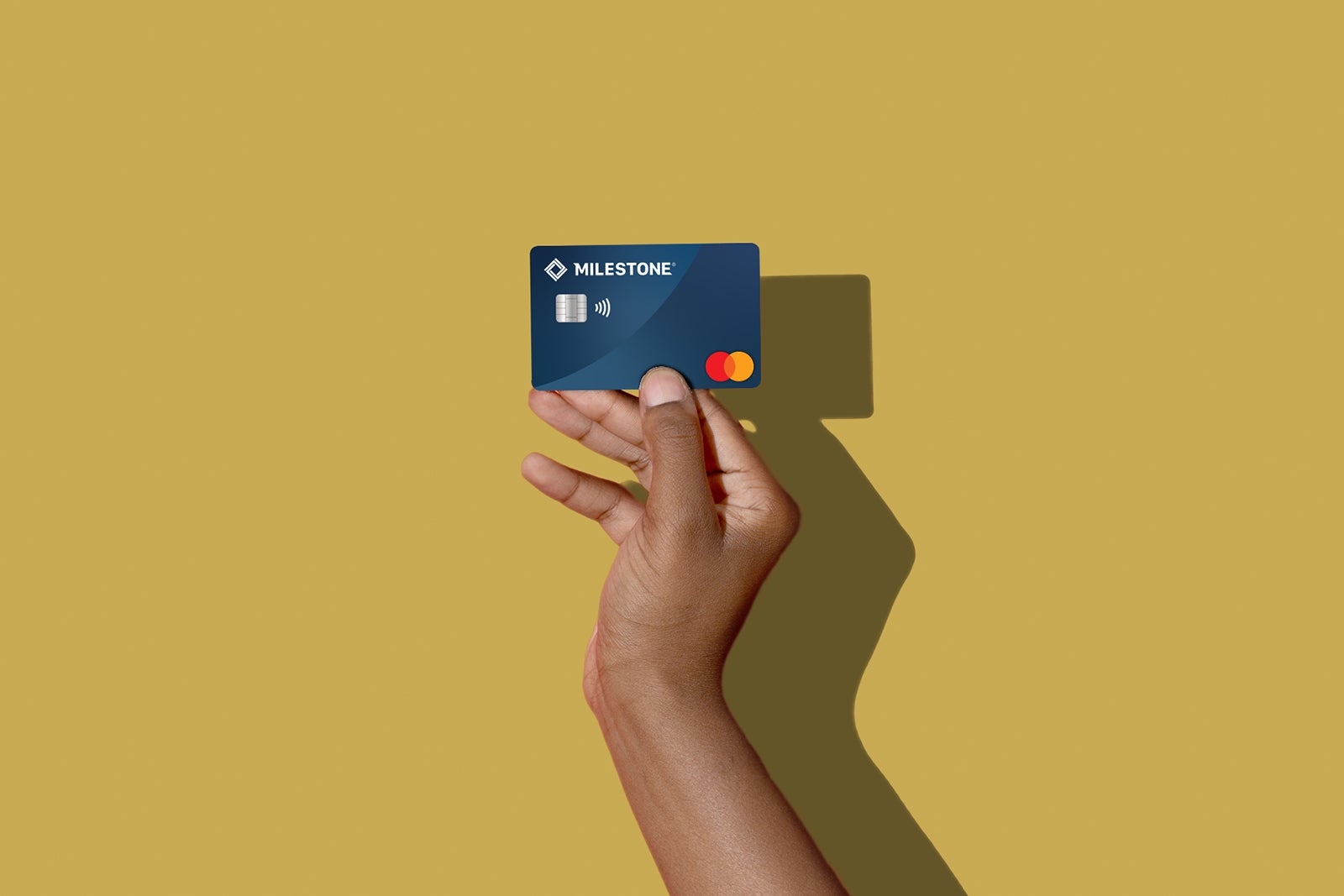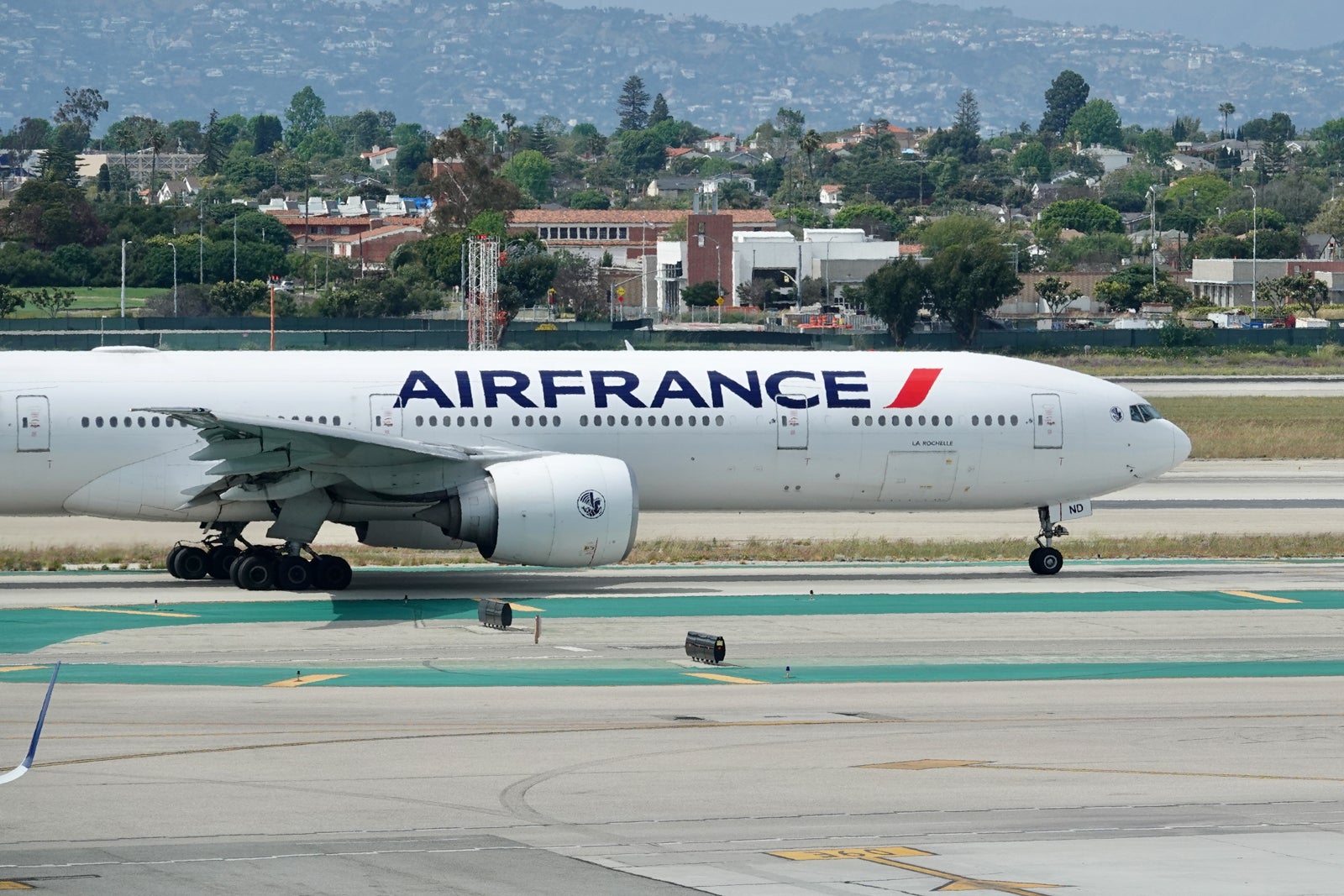Milestone credit card review: Full details
Milestone Mastercard overview
Building credit can be a challenge. The Bank of Missouri’s Milestone Mastercard® is one of many credit-building cards available on the market. The card doesn’t require a security deposit and has a solid minimum credit limit for a beginner card, but its first-year annual fee is outrageous for a card of its type. Card rating*: ⭐
*Card rating is based on the opinion of TPG’s editors and is not influenced by the card issuer.
At first glance, some of the Milestone Mastercard’s credit-building perks may seem appealing. However, this card quickly drops to the bottom of the list once you factor in the $175 first-year annual fee.
While the Milestone Mastercard’s annual fee does drop to $49 in subsequent years, this doesn’t mean you’ll save any money. Starting in the second cardholder year, you’ll need to pay an additional $12.50 monthly maintenance fee. Combining the two costs means you’ll pay a whopping $199 per year to hold this card.
With fees like that, this card must have some fantastic benefits to be even remotely worth considering. Still, one significant benefit is that no minimum credit score is required to get approved.
Let’s examine this card more closely to see if it offers anything in exchange for these exorbitant fees.
The information for the Milestone Mastercard has been collected independently by The Points Guy. The card details on this page have not been reviewed or provided by the card issuer.
Milestone Mastercard pros and cons
| Pros | Cons |
|---|---|
|
|
Milestone Mastercard benefits
The Milestone Mastercard doesn’t have any kind of welcome offer. This isn’t unusual for a credit-building card, but it is uncommon for a card with such a high annual fee.

Daily Newsletter
Reward your inbox with the TPG Daily newsletter
Join over 700,000 readers for breaking news, in-depth guides and exclusive deals from TPG’s experts
The card has two noteworthy benefits: No security deposit is required, and there’s a minimum $700 starting credit limit.
Many credit-building cards require a security deposit to get approved and use the deposit as your starting credit line. Since the Milestone Mastercard doesn’t require a deposit, you don’t need to have any money ready upfront when you apply (aside from the $175 for the annual fee).
This card’s $700 credit line isn’t great, but it’s better than the initial credit limits on many starter cards, which are sometimes as low as $200.
Depending on your financial situation, the Milestone Mastercard may offer an even higher starting line. Additionally, this card reports to all three credit bureaus and comes with fraud protection and the ability to use the card wherever Mastercard is accepted.
While these are decent benefits for a credit-building card, they’re incredibly lackluster for a card that charges as much as the Milestone Mastercard.
Related: Best secured credit cards
Earning and redeeming rewards on the Milestone Mastercard
The Milestone Mastercard doesn’t earn any rewards, so you won’t get any points, miles or cash back from your spending. We generally expect this from basic credit-building cards, but since this one costs so much to own, it’s disappointing that it doesn’t have anything to offer here.
If you want a starter card that earns rewards, you’ll want to go with one of our recommendations below instead of the Milestone Mastercard.
Related: 6 easy strategies I use to earn over 500,000 points and miles a year
Which cards compete with the Milestone Mastercard?
It isn’t hard to find competitors for this card; virtually any other card on the market surpasses the Milestone Mastercard. Here are three options to consider:
- If you want to earn rewards while building credit: The Capital One Quicksilver Secured Cash Rewards Credit Card has no annual fee (see rates and fees) and earns 1.5% cash back on all purchases. However, it does require a minimum $200 security deposit upon account opening. For more details, check out our full review of the Capital One Quicksilver Secured.
- If you like Chase: The Chase Freedom Rise® is a great option for those with poor or no credit. A Chase checking or savings account with at least $250 is highly recommended but not explicitly required. With this card, you’ll earn 1.5% back on all purchases. Plus, you’ll begin to build a relationship with Chase, which can make it easier to get approved for their other cards.
- If you’re a student: The Capital One SavorOne Rewards for Students is perfect for a college student looking to improve or establish their credit. This card has an impressive earning rate, earning 3% cash back on dining, entertainment, popular streaming services and purchases at grocery stores. Like the other cards featured here, you won’t have to pay an annual fee (see rates and fees).
For additional options, check out our picks for the best beginner credit cards.
The information for the Chase Freedom Rise has been collected independently by The Points Guy. The card details on this page have not been reviewed or provided by the card issuer.
Related: My first-year journey into the world of cards and points: From baby steps to maximizing rewards
Is the Milestone Mastercard worth it?
I have never been more confident in recommending against a credit card. With minimal benefits and excessively high fees, the Milestone Mastercard is one of the worst on the market. Skip this one and opt instead for a card with lower fees and better benefits.
Related: Why I closed my first credit card, and what I’d do differently if I could go back
Bottom line
The Milestone Mastercard is a credit-building card that doesn’t require a credit score or security deposit. Still, this card’s high fees and lack of reward-earning opportunities make it one of the worst beginner cards available. Almost everyone is better off going with a card like the Capital One Quicksilver Secured or the Freedom Rise.









